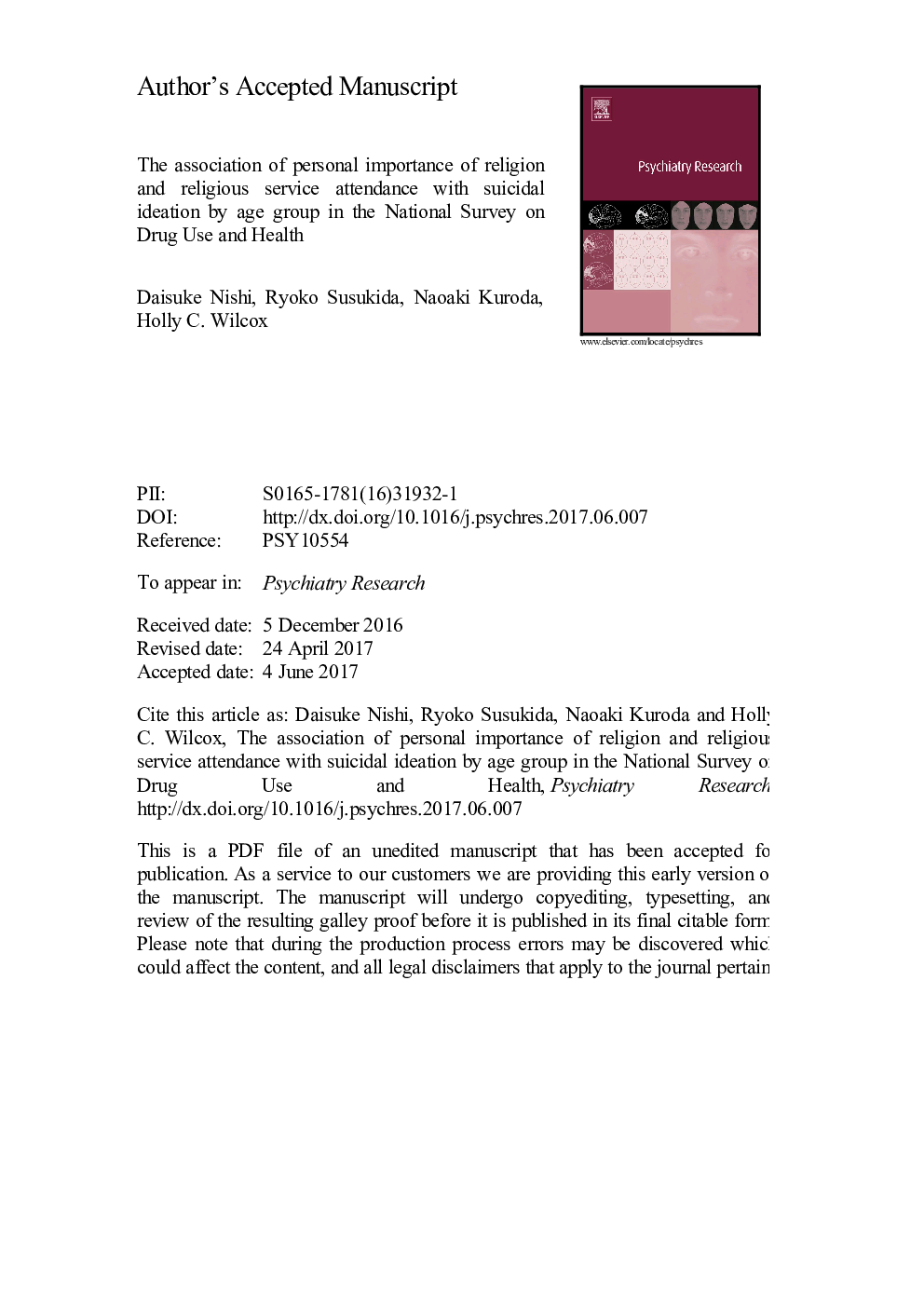| Article ID | Journal | Published Year | Pages | File Type |
|---|---|---|---|---|
| 4933211 | Psychiatry Research | 2017 | 19 Pages |
Abstract
Religiosity has been shown to be inversely associated with suicidal ideation, but few studies have examined associations by age group. This study aimed to examine the association between religiosity with suicidal ideation by age group. This study used a large nationally representative sample of 260,816 study participants from the National Survey on Drug Use and Health. Religiosity was defined as self-reported importance of religious beliefs and frequency of religious service attendance. The association between religiosity and suicidal ideation was assessed by multivariable logistic regression analysis stratified by age group (18-25, 26-34, 35-49, 50-64, 65 or older). The importance of religious beliefs was inversely associated with suicidal ideation in all age groups. The association was the strongest in people aged 65 or older, followed by people aged 18-25. Religious service attendance was also inversely associated with suicidal ideation in people aged 65 or more when attendance was more than 25 times per year. These findings may be helpful to understand age in relation to the relationship between religiosity and suicidal ideation. Particular attention to religiosity among older adults as a protective factor for suicidal ideation may be helpful in clinical settings.
Related Topics
Life Sciences
Neuroscience
Biological Psychiatry
Authors
Daisuke Nishi, Ryoko Susukida, Naoaki Kuroda, Holly C. Wilcox,
